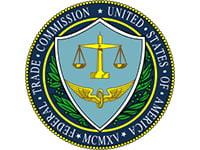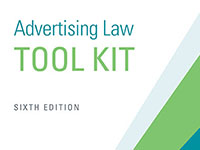 |
Start Replying with "STOP" When the District of New Jersey recently dismissed Rando v. Edible Arrangements International, LLC, a Telephone Consumer Protection Act (TCPA) lawsuit, the court added another case to a growing body of decisions that disfavors plaintiffs who intentionally avoid the familiar supplied text message opt-out mechanism—i.e., replying "STOP." In a recent blog post, Venable partner Dan Blynn writes that the court determined that the plaintiff's alleged efforts to "withdraw consent" through wordy text messages instead of replying "STOP" as instructed were not, under the totality of the circumstances, a "reasonable means" of revoking consent. |
 |
TCCWNA Cases No Longer an Easy Score Over the past few years, class action plaintiffs have filed a slew of lawsuits against online retailers under the New Jersey Truth in Consumer Contract, Warranty and Notice Act (TCCWNA), which prohibits a seller from offering or entering into consumer contracts that contain any term that violates a "clearly established" New Jersey or federal law. From what many retailers can tell, plaintiffs frequently search for certain terms in indemnification clauses, limitations of liability, and disclaimers of warranties in website terms of use and terms of sale and then file suit without suffering any injury at all. However, write Venable attorneys Ari Rothman and Shahin Rothermel in a blog post, a New Jersey Supreme Court decision earlier this week sharply limited the circumstances in which uninjured plaintiffs can pursue TCCWNA claims. |
 |
FTC Headed Back to the Future? A recent District Court decision in Delaware, if accepted by other courts, may severely limit the Federal Trade Commission's (FTC) ability to bring suit in federal court against defendants for past violations without adequately alleging an imminent future violation, write Venable attorneys Len Gordon and Mary Gardner in the May edition of the DRMA Voice. This would effectively return the FTC to an enforcement model that it largely abandoned in the early 1980s, and present a much higher standard of proof in cases that involve financial redress. What will happen next, they write, is difficult to predict. |
 |
From the Tool Kit: When developing terms of use for a website or other service, it pays to consider how those terms will be enforced. In the recent edition of the firm's Advertising Law Tool Kit, Venable attorney Kimberly Culp shares tips for developing enforceable terms of use. |
| UPCOMING EVENTS | |
|
CARU West 2018 Conference May 1-2, 2018 | Parc 55, San Francisco, CA Venable partner Amy Mudge will moderate the panel "Why Inclusive Marketing and Corporate Social Responsibility Are Good for Business" at the CARU West 2018 Conference. The last several years have marked a momentous shift toward more diversity and positive portrayals of different types of people. This panel will address how your company can keep up with the momentum and explain why embracing corporate social responsibility is also good for your bottom line. |
|
|
COMPLY2018 May 16-17, 2018 | Tribeca 360 and Rooftop, New York, NY Venable counsel Alexandra Megaris will moderate a session, "The Chief Compliance Officer Perspective," at COMPLY2018, The RegTech and Compliance Conference, on May 17, 2018 from 8:45 a.m. to 9:15 a.m. ET. During this session, guests will learn from three prominent chief compliance officers (CCOs) practical approaches to the challenges and changes arising from new technologies. A few of the challenges faced by CCOs that will be discussed include third-party risks, new regulations, global expansion, and ever-changing regulatory environments. Learn how CCOs are overcoming these competing demands to keep their organizations ahead of risk while staying ahead of the competition. Use the discount code VENABLE20 for 20% off the current ticket price when you register for this event. |
|
|
Running Social Media & Online Contests: What's Legal, What's Not May 14, 2018 | Online While running a contest or sweepstakes may seem like standard procedure to your clients, digital formats can pose new legal risks brands may not have faced in the past. During this 90-minute webinar presented by the National Constitution Center, Venable partner Melissa Steinman will discuss the laws that apply to sweepstakes, contests, and promotions in the U.S.; rules for running social promotions; and how new FTC enforcement policies, cases, and guidelines could affect your plans. |
|